1. Why did you choose LSE and the programme?
During my undergraduate studies, I delved into the field of public policy from a technical perspective. The courses frequently presented terms like ‘efficiency’, ‘standards of living’, ‘poverty’, ‘trade-offs’, and ‘inequality’ in the context of positive analysis. However, I noticed that these concepts were heavily value-laden, and that the implementation and ultimate outcome of public policy depended largely on the normative elements underlying them. I realised that, by exploring normative and methodological aspects of policymaking, the MSc Philosophy and Public Policy would offer me a more profound and comprehensive understanding of public policy. Ultimately, it would also help me become a critical professional with a stronger ethical foundation. The pragmatic approach of LSE made it the ideal choice: At LSE, philosophy is continuous with the social sciences and provides practical tools to address policy challenges.
2. Which aspects of your studies were the most beneficial for your professional as well as personal development?
Overall, the master’s has provided me with critical thinking and problem-solving tools that are useful both in my professional and personal life. It has allowed me to analyse problems more systematically, present complex debates in a digestible manner for the general public, create arguments that flow logically and coherently, and anticipate potential objections to my proposals. Studying analytical philosophy has also enhanced my communication skills. As a non-native English speaker, I have learned a lot about the importance of mastering the nuances of language to communicate effectively and avoid ambiguities. I have also learned about different communication strategies, understanding when to use more conciliatory or combative approaches, and how to handle the weaknesses in my arguments.
3. What is your fondest memory of your time here?
It is hard to pick just one among so many good memories! On the academic side, I have enjoyed the classes immensely, especially the seminar discussions with my classmates. We have had really interesting conversations, which have often continued in the pub after class. In philosophy, you can talk about anything (and, even better, question everything), and I can’t help but recall some discussions involving funny thought experiments where I have learned (and laughed) a lot. On a personal level, I must say that the human quality of my classmates and the department staff has made my master’s even more enjoyable and enriching. I feel very fortunate to have coincided with such kind and passionate colleagues. I will never forget my 25th birthday celebration, which I thought very few people would attend due to assignment deadlines. On the contrary, my classmates filled the pub, offered me a pint, and joined me for dinner afterwards.
4. Why would you recommend studying at LSE and the Philosophy department in particular?
LSE is much more than its international academic reputation. It is an intellectually stimulating environment that provides many opportunities to interact with professionals, academics, and public figures who are shaping the global debate. It is also a culturally and socially stimulating place, as it serves as a meeting point for students and professionals from all around the world. Moreover, the LSE Students’ Union offers the possibility to become part of sports, cultural, political societies, etc. And last but not least, London offers plenty of opportunities and activities for students. Here, one never runs out of things to do! The Philosophy department at LSE is very special. Firstly, it enjoys a great reputation worldwide, and the teachers are relevant experts in their fields. The staff is also approachable and kind. Secondly, the students in the department are genuinely passionate about philosophy and come from a wide range of disciplines, which makes discussions more enriching. Thirdly, the department promotes hands-on learning: Instead of simply memorising content, they help you develop critical thinking skills and express your ideas effectively in speaking and writing. Lastly, it is a relatively small department, which makes it easier to get to know your colleagues and create a sense of community.
5. Your LSE experience in your own words
A gift. Studying my master’s degree at LSE was something I couldn’t dare to dream of when I first arrived at university. I worked very hard to secure a scholarship, and I am deeply grateful to my sponsor, “la Caixa” Foundation, for providing me with this opportunity. I have enjoyed every single day!


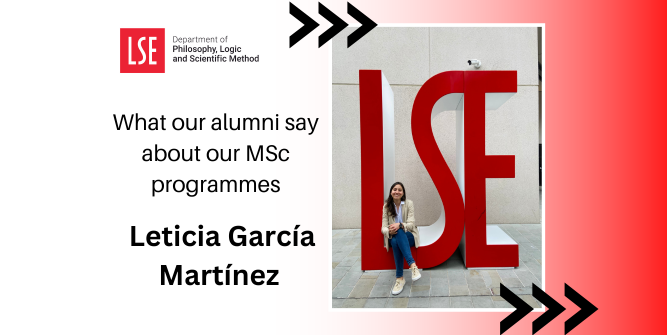


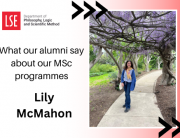
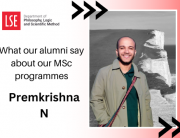
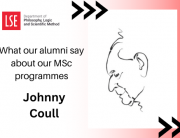
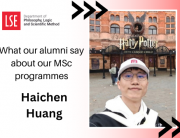


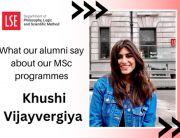


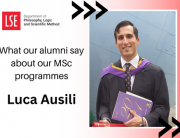
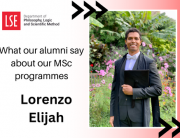

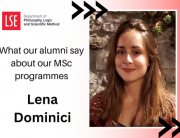
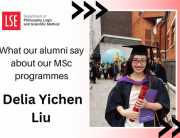

Connect with us
Facebook
Twitter
Youtube
Flickr